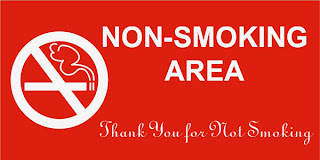
Acting on a tip, Butler County authorities seized nearly 40 suspected marijuana plants from an indoor grow operation found at a rural home.
The suspected grow operation was found inside Ronald Gayl Sheedy's mobile home on County Road 415.
The alleged operation was found after Sgt. Brandon Waggoner received information indicating Sheedy was "growing marijuana at his residence …" according to investigator Wes Popp's report.
The confidential source, Popp said, also indicated there was a "strong odor of marijuana" coming from within the residence.
Waggoner, Popp said, further was told there was a green four wheeler parked at the residence, which allegedly had been stolen.
When Waggoner responded at about 9:20 p.m. Monday and stepped to the door of the residence, Popp said, the deputy could smell a strong
odor of marijuana, believed to be coming from inside the home.
Popp said Waggoner also reported seeing a green four wheeler parked next to an outbuilding.
As Waggoner knocked on the door, attempting to make contact with Sheedy, Popp said, a neighbor reported Sheedy was not home.
At that point, Popp said, Waggoner had Deputy Brian Kearbey secure the residence until a search warrant could be applied for.
Sheedy subsequently arrived and was told of his rights, said Popp.
Waggoner, he said, provided Sheedy with the information he had in regards to the suspected stolen four wheeler and grow operation.
"Sheedy admitted the four wheeler was stolen and also stated that he had 13 or 14 marijuana plants in various stages of growth," Popp said.
When Waggoner activated a voice recorder, Popp said, Sheedy reported he wished to speak to an attorney before continuing.
Based on Sheedy's admissions, Popp said, the 55-year-old was arrested on suspicion of possession of more than 35 grams of marijuana and receiving stolen property and booked at the Butler County jail.
Kearbey was left at the scene while officers obtained a search warrant, which was executed at about 12:30 a.m. Tuesday.
The suspected indoor grow was found in a back bedroom of Sheedy's mobile home, according to Lt. Brian Evans. "The bedroom was divided; all the plants were in that area," he said.
A total of 36 plants were found growing in individual pots, said Evans, who described the plants as ranging in size from starter plants to some being close to maturity at about 5 feet tall.
Officers, Evans said, also found such items as artificial lights, fans and a humidifier in the room, as well as a ventilation system.
"He had vents going out the bottom of the floor and also through the roof," said Evans. " … He just watered them by hand."
Evans said officers also found potting soil and fertilizer in the bedroom.
During the investigation, Evans said, officers also came into contact with Michael Shawn Jameson, who arrived at the residence with Sheedy. However, when they saw officers at Sheedy's home they tried to leave and had to be stopped.
Sheedy, according to Waggoner's report, told him Jameson had asked to borrow $1,000.
"(Sheedy) stated that he advised Jameson that he needed collateral before he would loan the money to him," Waggoner said. "He stated that Jameson then brought the stolen four wheeler to him."
The four wheeler, Waggoner said, had been reported stolen Jan. 1 from a residence in the 2300 block of County Road 459.
Jameson also was contacted and told of his rights, Waggoner said.
"(Jameson) stated that he is aware of the four wheeler and asked me, ‘Are you talking about the green one?'" Waggoner said.
Jameson, Waggoner said, also reported he was "aware of the marijuana that was growing inside Sheedy's residence."
Waggoner said Jameson denied assisting Sheedy in the alleged grow operation and being responsible for the stolen four wheeler.
"Jameson then proceeded to tell me ‘how good the weed is' that Sheedy is growing," Waggoner said. "He also advised me that Sheedy has been riding the four wheeler around the property for nearly a month.
"He stated that he has never borrowed any money from Sheedy."
Jameson, 35, of Ellsinore was arrested on suspicion of receiving stolen property. He was booked at the Butler County jail.








